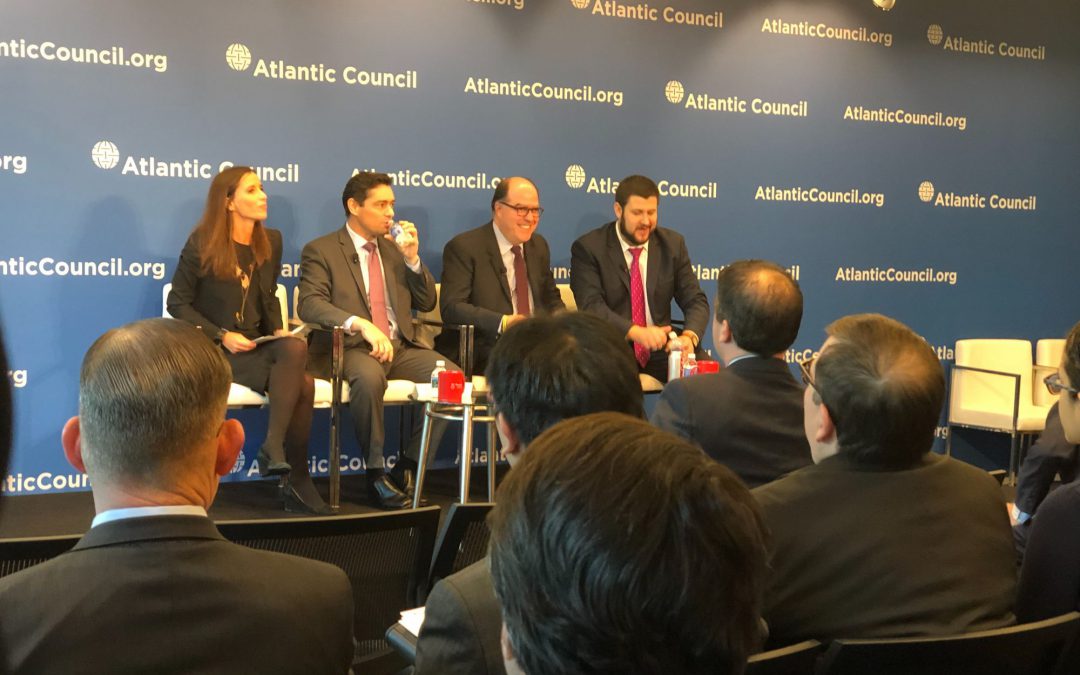WASHINGTON – Representatives from Venezuela’s interim government Wednesday advocated for greater international support for self-declared interim president Juan Guaidó and greater pressure on President Nicolás Maduro to step down.
Guaidó’s representative to the United States, Carlos Vecchio, said at an Atlantic Council event that other countries should band together to “put an end to the usurpation of power by” Maduro.
“The [Maduro] regime has always tried to manipulate and confuse the international community,” Vecchio said, urging world leaders not to be swayed by Maduro’s insistence on talks among parties within his country.
Guaidó swore himself in as president Jan. 23 with strong popular support and was immediately recognized as the leader of Venezuela by the United States and Canada. Maduro is still fighting to maintain control over the Venezuelan government and military. He is supported by, among others, Russia, China, Iran, Syria and Turkey
Julio Borges, former president of the Venezuelan National Assembly, said a period of great change is taking place within Latin America.
“The Berlin Wall is falling in Latin America,” he said.
Borges said “the country is a wreck” because of Maduro’s regime and is still using an “old Cold War handbook” for domestic policies.
“It’s like [Venezuela] is playing basketball while other countries are playing soccer,” Borges said.
Ambassadors from Paraguay, Chile and the European Union expressed their countries’ support for Guaidó and his government.
Former Rep. Ed Royce, R-Calif., stressed that Guaidó also has the backing of the U.S. Congress and said “all democratic countries must support” Venezuela’s efforts to establish a democracy.
President Donald Trump called Guaidó Wednesday to congratulate the new leader and pledge the support of his administration, press secretary Sarah Huckabee Sanders said in a statement.
Vecchio said the interim government’s first priority is to set up fair elections and ensure there is no violence as Maduro is removed from power.
“We want orderly transition to take place in our country,” he said.
Vecchio said the interim government would create a system different from authoritarian rule.
“The Venezuelan people want progress and democracy,” he said. “The dream of freedom is so great, we won’t stop until we reach our goal.”
Borges said seven military coup attempts in the last year show Maduro does not have the full support of his armed forces, further complicating his effort to stay in office.
Borges and Vecchio said the interim government would grant amnesty to soldiers who accept its authority and do not crack down on protesters, calling the killings of demonstrators a “crime against humanity.”
Human rights abuses have long been a problem in Venezuela, with Maduro and his predecessor, Hugo Chávez, accused of stifling dissent, limiting press freedoms and blocking humanitarian aid. Over 3million refugees have fled the country since 2014, according to the UN High Commissioner for Refugees.

